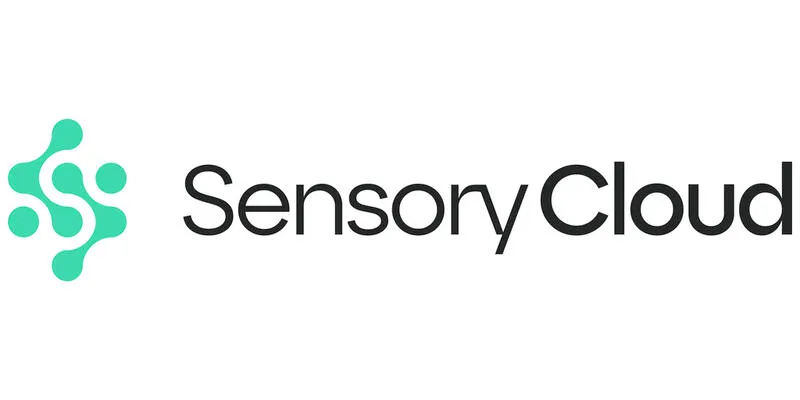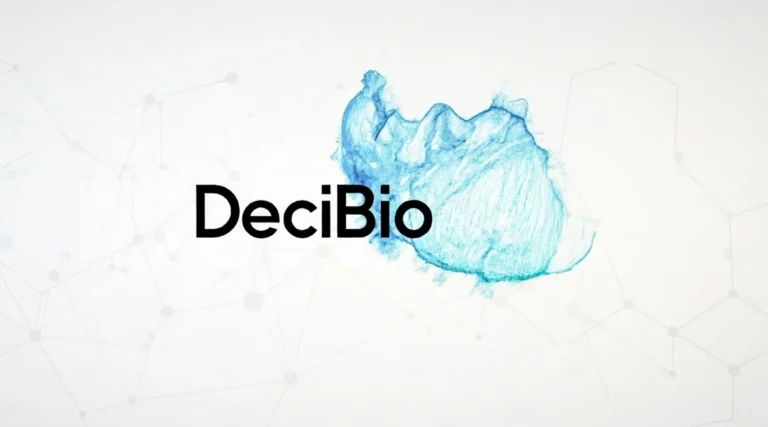
Sensory Cloud Reports Encouraging Phase 2a REACH Trial Results for Novel Aerosol Therapy in Refractory Chronic Cough
Sensory Cloud Inc., a clinical-stage biopharmaceutical company developing first-in-class therapies targeting mechano-sensitive ion channels in the respiratory system, together with collaborators at King Saud University, has announced positive findings from its Phase 2a REACH trial. The study evaluated SC0023, a proprietary therapeutic aerosol designed to deactivate airway ion channels implicated in chronic cough hypersensitivity, in patients suffering from refractory chronic cough (RCC).
The results suggest that SC0023, which is composed of ions naturally occurring in the human airway, has the potential to meaningfully reduce cough frequency and improve symptoms in patients with limited treatment options. Importantly, the trial data also indicated that SC0023’s therapeutic effect persisted for several weeks following administration, even though the aerosol ions clear from the body within hours.
A New Approach to Chronic Cough Treatment
Refractory chronic cough is a debilitating condition defined by a persistent cough lasting more than eight weeks that does not respond to standard therapies. Patients often struggle with severe physical, social, and emotional consequences, as chronic coughing can interfere with sleep, disrupt daily life, and contribute to significant anxiety and depression. Despite its prevalence, effective treatment options remain limited.
Sensory Cloud’s SC0023 aims to address this gap through an entirely new therapeutic mechanism. Unlike conventional therapies that primarily target airway inflammation or neurological signaling downstream in the cough reflex, SC0023 acts upstream by relieving compression of mechano-sensitive ion channels (MSCs). These ion channels are highly sensitive to mechanical stress and play a key role in triggering cough hypersensitivity.
By targeting the biophysical origin of the condition — mechanical hypersensitivity in airway nerves — Sensory0023 may represent a paradigm shift in the treatment of RCC, both as a standalone therapy and as a potential adjuvant to other cough treatments in development.
Expert Perspectives on the REACH Trial
Several leading clinicians and scientific advisors associated with the trial emphasized the significance of the findings and the implications for future treatment strategies.
Dr. David A. Edwards, founder and CEO of Sensory Cloud and adjunct professor of medicine at Johns Hopkins Medical School, expressed optimism about the persistence of SC0023’s effect:
“We are very encouraged by the Sensory REACH findings and, in particular, the observation of a persistent treatment effect of SC0023 for several weeks post-dosing. We are still exploring the dataset and will be sharing the final results in a keynote presentation at RESCON in San Francisco this fall.”

Dr. Kian Fan Chung, Professor of Respiratory Medicine at Imperial College London and co-principal investigator of the trial, highlighted the value of continuous cough monitoring in capturing a detailed treatment response:
“REACH illustrates the analytical power of continuous cough monitoring. With over 450 patient cough count days, the REACH trial exceeded the sample size of any previous Phase 2a or 2b trial with only 10 patients, Sensory and generated intra- and inter-subject information on the time course of treatment. In the case of SC0023, this appears vital to understanding how the therapeutic exerts its effect.”
Dr. Dennis Ausiello, Jackson Distinguished Professor of Clinical Medicine at Harvard Medical School and Chairman of Sensory Cloud’s Board, further emphasized the importance of SC0023’s unique therapeutic approach:
“REACH sheds new light on a unique modality of cough treatment — both as a potential first-line therapy for RCC and as an Sensory adjuvant to future therapeutics that act downstream of the airway inflammation cascade targeted by SC0023.”
Design and Methodology of the REACH Trial
The REACH trial was structured as a Phase 2a crossover study to evaluate the efficacy, safety, and tolerability of SC0023 in a small patient cohort with refractory chronic cough. A total of 10 patients were enrolled.
The primary endpoint focused on the relative change from baseline in 24-hour cough frequency. However, due to a significant treatment period effect inherent in the crossover design, the primary efficacy analysis was restricted to the first dosing period, essentially converting the analysis into a parallel-arm design.
This adjustment still allowed the investigators to capture robust intra-patient and inter-patient data, thanks to the Sensory trial’s use of continuous digital cough monitoring. The Hyfe CoughMonitor watch was deployed to track cough counts in real time, generating more than 450 cough count days across participants.
Key Findings from the Trial
Preliminary analyses of both the intention-to-treat (ITT) population (n=10) and the per-protocol subset (n=7) confirmed exploratory findings previously reported in the literature, specifically those of Abubakar-Waziri et al. (2024). Sensory Across both analytic groups, SC0023 demonstrated a measurable reduction in cough frequency compared with placebo.
Notably, adherence-adjusted post hoc analyses revealed:
- 34% placebo-adjusted reduction in cough rate (n=6; p=0.045).
- 40-point improvement in Visual Analog Scale (VAS) cough severity score compared with placebo (n=6).
- Improvements observed consistently across baseline cough severity levels:
- 56-point reduction in patients with a baseline cough rate of 5 coughs/hour.
- 54-point reduction in patients with a baseline cough rate of 25 coughs/hour.
One of the most striking observations was the persistence of cough rate suppression for several weeks after dosing, despite the known three-hour clearance time of SC0023’s endogenous ions. Investigators believe this durability reflects the down-regulation and decompression of mechano-sensitive ion channels, supporting the proposed mechanism of action.
Importantly, no clinically significant treatment-emergent adverse events (TEAEs) were reported. Two serious adverse events (SAEs) occurred during the trial, but both were deemed unrelated to the investigational therapy.
The Role of Digital Health and Continuous Monitoring
A major distinguishing feature of the REACH trial was its integration of continuous cough monitoring. Traditional cough studies have historically relied on subjective patient reports or limited snapshot recordings. By contrast, the use of the Hyfe CoughMonitor enabled researchers to gather objective, high-frequency data over extended periods.
This digital health innovation provided granular insight into individual and group treatment responses, timing of therapeutic effects, and persistence of benefit. The ability to capture more than 450 cumulative cough count days from just 10 patients demonstrates the efficiency of modern trial design when paired with advanced monitoring technologies.
According to investigators, this approach sets a new benchmark for future clinical studies in cough and respiratory therapeutics, ensuring that subtle treatment effects can be captured with smaller cohorts while still generating statistically and clinically meaningful data.
Positioning SC0023 in the RCC Treatment Landscape
Refractory chronic cough is notoriously difficult to treat. Current approaches, such as neuromodulators (gabapentin, amitriptyline) and speech therapy, are only partially effective and can be associated with side effects or limited adherence. More recently, P2X3 antagonists have shown promise, but tolerability issues such as taste disturbances have restricted their adoption.
SC0023’s mechanism offers several potential advantages:
- Physiological basis: By using ions already endogenous to the airway, SC0023 may reduce safety risks compared to synthetic drugs.
- Upstream mechanism: Targeting MSCs could halt cough hypersensitivity at its origin rather than downstream in the inflammatory or neural pathways.
- Adjuvant potential: SC0023 may be used in combination with future agents, amplifying overall therapeutic benefit.
If further validated in larger clinical studies, SC0023 could become a first-in-class therapy with broad applicability across refractory and chronic cough populations.
Based on the encouraging Phase 2a findings, Sensory Cloud is now preparing to launch REACH2, a follow-up study to be led by Professor Kian Fan Chung in London later this year. This next phase will expand patient enrollment, refine dosing protocols, and further investigate the persistence of therapeutic benefit.
Final results from the REACH trial will be presented at RESCON 2025 in San Francisco, offering the broader scientific community an opportunity to review the data in detail.
For Sensory Cloud, these milestones represent not only validation of its scientific platform but also a significant step toward bringing a novel therapeutic class to patients with urgent unmet needs.
The REACH trial marks an important milestone in the search for new therapies for refractory chronic cough, a condition that has long frustrated both patients and physicians due to limited treatment options. By demonstrating both efficacy and durability of response with a novel mechano-sensitive ion channel–targeting aerosol, Sensory Cloud has provided compelling early evidence of a potential breakthrough therapy.
As larger studies like REACH2 get underway, the field will be watching closely to see if SC0023 can translate its promising Phase 2a results into broader clinical impact. For patients struggling with the daily burden of chronic cough, the trial results provide a renewed sense of hope that a safe and effective therapy may soon be within reach.





